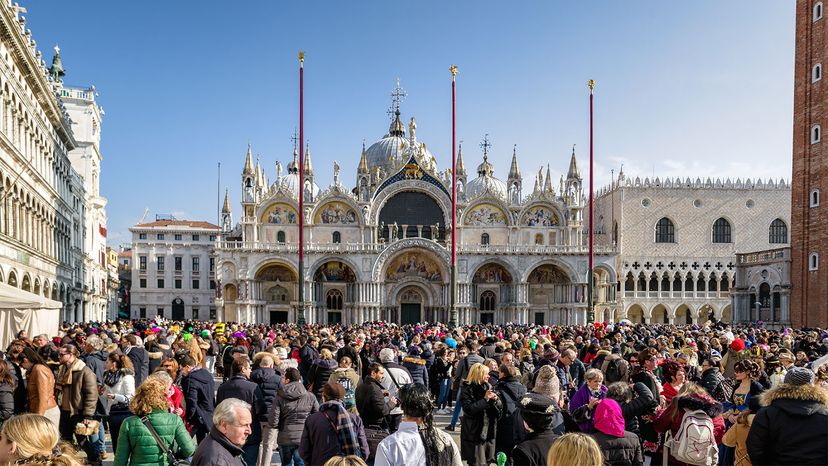
Venice, the "floating city" in northeastern Italy known for its art gallery-like cathedrals, attracts millions of tourists each year — and soon they'll have to pay for the privilege of visiting the increasingly fragile spot.
The pay-to-see "tourist tax" put in place by city officials will begin Jan. 16, 2023, when daily visitors will be required to make a reservation that requires a daily fee of 3 to 10 euros ($3 to $11). The exact fee will depend on how crowded the city is expected to be on any given day, with higher prices designed to discourage visitors. The digital reservation system, and the reservations that can be booked through that system, are viewed by city officials as a means to prevent overwhelming tourist numbers that have been estimated to range as high as 30 million annually in the city with a resident population of 55,000.
Advertisement
If you are staying overnight at a Venice hotel, there will not be a separate reservation fee; however, there will be a tourism fee included in hotel costs.
Why the fuss about fees? Well, the underpinnings of this venerated city are an engineering marvel, but becoming increasingly fragile because of rising sea levels and the increasing weight of nearly 100,000 tourists who traverse the city each day. Venice is built atop 118 islands connected by 400 bridges spanning a network of canals — all within the space of a shallow lagoon between two rivers.
Beginning in 421 C.E., settlers chopped down water-resistant trees of the region, such as alder and oak, and used the timbers to create a platform that would serve as a base for the foundation of buildings set atop the marshy soil. An estimated 11 million (or more) timbers hold Venice aloft, but because the pilings are entirely underwater and not exposed to oxygen, they are not susceptible to rot.
There are some exceptions to the reservation requirements. Guests of Venetian residents, children under 6 and those who are visiting people held in a Venetian jail are exempt but will still have to show proof of entry. The way that proof will be established is not yet known, but it could involve a QR code that could be presented to one of the dozen or so Venetian employees who will roam the city to enforce the rule and, when needed, levy fines.
The tourist tax is yet one more measure Venetians are taking to preserve the city, which is a UNESCO World Heritage site. In April 2022, the city banned large cruise ships from entering Venetian waters to prevent large waves from destabilizing the city and to cull the day-trippers who are estimated to spend the least amount of money in the city.
Advertisement
